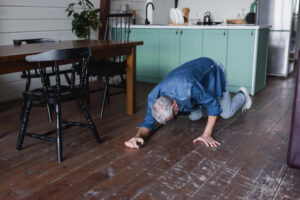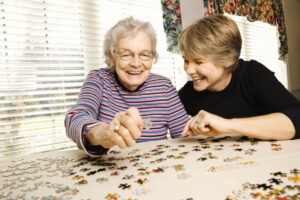Getting adequate sleep is essential for overall health. People who consistently get insufficient sleep are more likely to suffer from certain health conditions such as cardiovascular disease, type 2 diabetes, obesity, and anxiety or depression. It’s a well-known fact that children need between 9 and 13 hours of sleep per day, depending on their age. Young adults generally function pretty well on around 7 hours of sleep. But what about adults aged 65 and older? How much sleep do they need to maintain optimal health?

Sleep Recommendations for Older Adults
The Centers for Disease Control and Prevention recommends that adults 65 years of age or older get between 7 and 8 hours of sleep each night. However, it is important to understand that individual sleep needs may vary based on overall health and quality of sleep. Some older adults may need more than 8 hours of sleep if they are not getting enough quality sleep or have special health needs. Other older adults may feel wholly refreshed after only 6 hours of sleep.
Changes in Sleep Patterns in Older Adults
It is not unusual for the sleep patterns of older adults to change. This can lead to trouble sleeping or insomnia. Here are some of the most common sleep changes experienced by older adults:
- Waking up earlier in the morning than usual
- Getting tired earlier in the evening than usual
- Waking up in the night and being unable to return to sleep
- Having general difficulties falling asleep or staying asleep
As people age, their bodies produce less melatonin. Since melatonin is one of the key hormones impacting sleep patterns, it makes sense that its reduction could lead to sleep problems. In addition, other health problems, such as restless leg syndrome and sleep apnea, can make it difficult to obtain quality sleep.
How To Improve Quality of Sleep
If you or another older adult in your life experiences sleep problems, here are some tips that may help.
- Do not lie in bed for too long attempting to fall asleep. After 30 minutes of trying—and failing—to fall asleep, get up and go to a separate room of your home. Engage in a relaxing activity such as listening to music or reading. When you feel sleepiness start to set in, go back to bed and try to fall asleep once more.
- Do not take naps longer than 20 minutes.
- Avoid drinking caffeine at least 8 hours before bedtime.
- Go to bed at the same time every day and maintain the same waking time.
- Try to be active and get exposure to natural light during the day. This will help regulate your internal clock.
- Avoid alcohol and nicotine in the evening.
- Talk to your doctor about any medications you’re taking and whether they interfere with your sleep quality. Certain drugs may disrupt sleep, including cardiovascular drugs, antidepressants, and beta-blockers.
At Elder Care Alliance, we work hard to create an atmosphere conducive to good sleep at night. If any of our residents struggle to get quality sleep, we offer customized care to try to help.




















